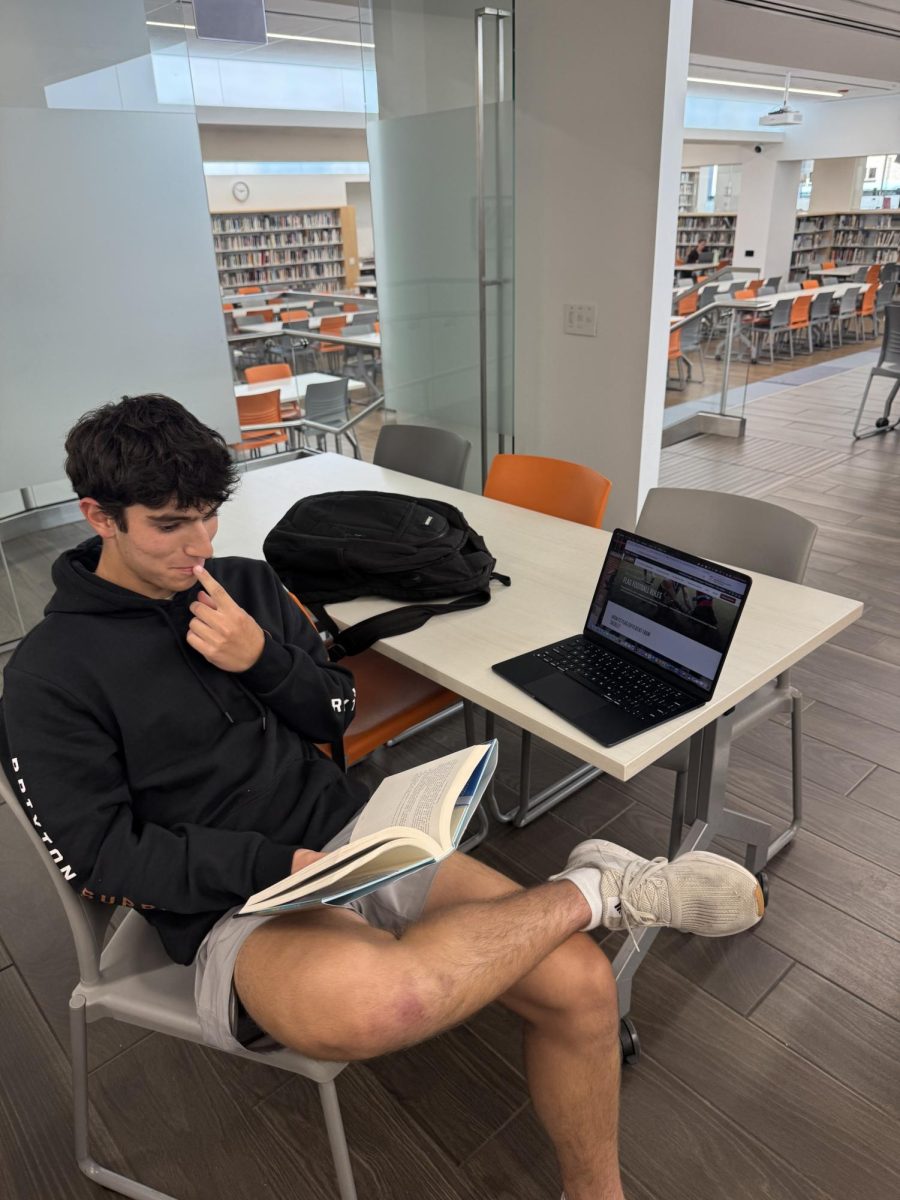A Tale of Two Monsters

The sticker on the front page of the December 2009 issue of the Sun-Sentinel.
February is a dark time. School days feel like years; it is cloudy and cold. While most people spend their days looking for the light at the end of this long, dark tunnel that is winter, I chose to embrace the darkness and dive into the horror of two infamous American psychopaths—Jeffrey Dahmer and Bernie Madoff, as depicted in two new TV shows.
Although seriously disturbing, the shows were illuminating, addictive, and far less focused on these once-in-a-generation monsters than you might think. The most compelling aspect of these stories, as told in their respective Netflix docuseries, is how big a role society at large played in the atrocious acts of these men. Also fascinating is how many characteristics these men shared. A new favorite dinner conversation at my house is debating whose behavior was more egregious. For all of these reasons and more, both shows come highly recommended.
“Dahmer-Monster: The Jeffrey Dahmer Story” is the first season of a series on real-life serial killers that debuted on Netflix in September 2022. Created by Ryan Murphy and Ian Brennan, the series follows the life of Dahmer (played by Evan Peters) and depicts the events that led to his becoming one of the most notorious serial killers in America.
Between the years of 1978 and 1991, Dahmer murdered 17 men. He is best known not just for the killings but for the grotesque fashion in which he would drug his victims, attempt to lobotomize them and then turn them into “zombies” to sexually control. Also, he liked to eat them. Additionally confounding to the public was his outward persona. Dahmer presented as a clean-cut, mild mannered, bright man from a relatively “normal” middle class suburban family. Netflix did a superb job taking all of those unbelievably horrific facts and telling a story that is not all about the gore.
There is a lot to learn for those who can push through it, and not everyone can. Sophomore Izzy Weinberg said, “I started the Dahmer series but was too disturbed to keep watching. It’s interesting, but I just couldn’t get through it.”
For me, the interesting aspects far outweighed the disturbing parts. I found the series a heart-wrenching psychological inquiry. One of the most meaningful parts covers Dahmer’s father and asks viewers to contemplate the endless limits of a parent’s love and devotion.
Also well told was the way the series provides insight into societal discrimination. Dahmer came of age at a time when homosexuality and mental health issues were met with shame and embarrassment. The series rightly asks its viewers to consider those impacts on Dahmer’s eventual behaviors.
“I’m sure there are genetic tendencies and predispositions that make people more likely to be violent or commit violent crimes,” freshman Scarlet Gitelson said, “but I also think that behind the pain these people cause others is a lot of pain endured.”
The series details societal woes that go well beyond Dahmer. It chronicles the frustratingly numerous ways in which local police, investigators, and judicial figures all failed to protect society, seemingly blinded by the “whiteness” of Dahmer against the color of his chosen victims. Sophomore Ben Gibson found value despite the gore when the series focused on these aspects of the story. “It is far more than just a horror show,” he said. “It really highlights how dangerous certain unaddressed societal issues can be.”
Finally, in what again seemed an effort to make the story about much more than Dahmer, Murphy and Brennan chose to make Dahmer’s neighbor as large a character as Dahmer himself. Glenda Cleveland, played by Niecy Nash, is the anti-Dahmer: a poor, Black, selfless, self-assured, and determined woman. Her character is a stark reminder of how a seemingly once-in-a-generation monster is not to be relegated to thoughtless voyeurism. Netflix asks all of us to consider our roles in these tragedies, making its viewing not just informative, but important.
While I didn’t anticipate such a well-timed follow-up when I turned to my next Netflix binge—filmmaker Joe Belinger’s “Madoff: The Monster of Wall Street”—I knew it would be an interesting comparison. As an interviewee states early in the series, “[Madoff] was a financial sociopath, a serial financial killer.” Indeed, watching the story of Madoff evoked the same emotions of anger, sickness, and ultimately sadness that I had felt learning about Dahmer. And just as the Dahmer series pleasantly surprised me in the way it wasn’t at all about the gruesome killings, Madoff was not at all about complex or boring financial transactions. The scheme at the heart of Madoff’s white-collar crimes was extremely simple, and therefore, quite easy for anyone to follow.
The series contains fascinating archival footage, including confessions of Madoff himself, real-time interviews with former investigators and employees, as well as dramatic reenactments. “The real interviews made the show extra interesting,” Ben noted. “It was fascinating to see not only real footage of Madoff but his co-workers and the investigators as well.”
Interestingly, while Madoff was the mastermind of the massive fraud, there was plenty of blame to go around, including household names such as JP Morgan Chase Bank. Indeed, the villains in this story included the SEC and other government agencies that failed to protect investors, blinded by Madoff’s privilege and wealth. The series is a strong reminder that wealth in no way means someone is good, honest, or genuinely successful. Thus, as with Dahmer, the entire series is less about the acts of one man and more about society. It’s a scathing critique of Wall Street, wealthy investors, thoughtless wannabes, government regulators, and the insidious fashion in which greed has a way of working into people.
Both of these docuseries did more even than advertised. And as for which monster wins the prize in my view, all I can say is I kind of wish Dahmer had met Madoff in the early ‘70s, just as they were both getting started.

Mia Kotler ('25) is thrilled to be one of the Editors-in-Chief for The Forum this year. She is a passionate writer who enjoys expressing her views and...



















































